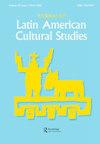Thinking In The Present: Virus, Feminism, Politicity
IF 0.3
4区 社会学
Q4 CULTURAL STUDIES
引用次数: 0
Abstract
The following conversation took place on 20 September 2020, during a virtual encounter jointly organised by Princeton University’s Latin American Studies Programme, and the journal Cuadernos de Literatura, from the Pontificia Universidad Javeriana, Bogota. “Thinking in the Present” offered a critical opportunity to confront the interpretative volatility and paralysis of criticism of the current moment, the failure of liberal democracy, the deepening of inequality based on intersectionality, and the geopolitics of the COVID-19 pandemic. The virus has disorganised and exposed the intrinsic failure of the algorithms set in the past few decades to predict our movements, to anticipate, and therefore to control, life on the planet, our behavioural patterns and wishes: from how we shop to how we vote. The interpretative failure vis-à-vis the virus’s global behaviour – its universalisation in other words, that attempts an interpretation that could apply from New Zealand to Colombia, from Honduras to Singapore – summons forth two thinkers who have worked around the notion of uncertainty, thinkers who could be defined with a key word: suspicion. The photograph featured on the event poster (Figure 1) is by Lotty Rosenfeld, who had recently passed away in Santiago de Chile. The encounter also took place in memoriam of this unforgettable artist, who taught us how to cross the sign. Her crosses bear witness to an indelible act: Lotty Rosenfeld (1943–2020).当下的思考:病毒、女权主义、政治
以下对话发生在2020年9月20日,由普林斯顿大学拉丁美洲研究计划和波哥大Javeriana大学的《Cuadernos de Literatura》杂志联合组织的一次虚拟会议上。“在当下思考”提供了一个关键的机会,以应对对当前时刻的批评的解释性波动和瘫痪、自由民主的失败、基于交叉性的不平等的加深以及新冠肺炎大流行的地缘政治。该病毒扰乱了组织,暴露了过去几十年中设置的算法在预测我们的行动、预测并控制地球上的生活、我们的行为模式和愿望方面的内在失败:从我们如何购物到我们如何投票。对病毒全球行为的解释失败——换言之,它的普遍性,试图从新西兰到哥伦比亚,从洪都拉斯到新加坡——唤起了两位围绕不确定性概念工作的思想家,他们可以用一个关键词来定义:怀疑。活动海报上的照片(图1)由洛蒂·罗森菲尔德拍摄,他最近在智利圣地亚哥去世。这次相遇也是为了纪念这位难忘的艺术家,她教我们如何穿过标志。她的十字架见证了一个不可磨灭的行为:洛蒂·罗森菲尔德(1943–2020)。
本文章由计算机程序翻译,如有差异,请以英文原文为准。
求助全文
约1分钟内获得全文
求助全文

 求助内容:
求助内容: 应助结果提醒方式:
应助结果提醒方式:


